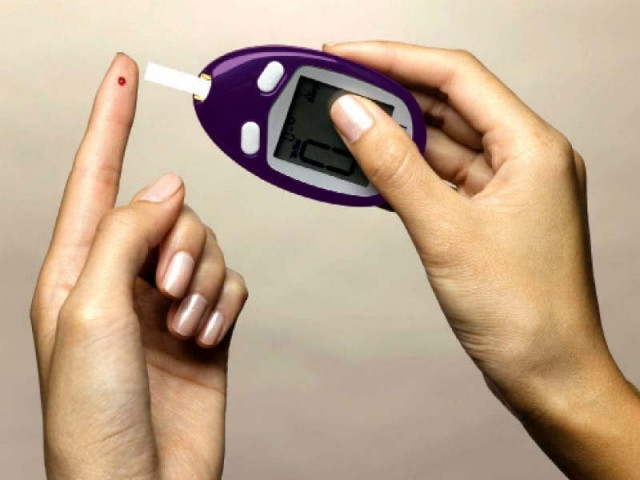Beware of sugar: Seven million Pakistanis at risk of getting diabetic
Approximately 88,000 people die from diabetes in Pakistan every year, said Dr Fariduddin.

As many as seven million Pakistanis are diabetic while another seven million are at a risk of being diagnosed with the disease, said Dr Fariduddin of the Dow University of Health Sciences (DUHS) National Institute of Diabetes and Endocrinology (NIDE) on Tuesday.
Dr Fariuddin is the institute's deputy director and was speaking at Karachi Press Club about how to manage diabetes in Ramzan.
He said that most diabetics suffer in Ramzan due to an unhealthy diet which he believes they can avoid if they eat right. Dr Fariduddin said that most of the sugar or glucose levels of most patients remain low during Ramzan and this could be fatal. "They should check their sugar level at regular intervals while fasting," he advised. "People suffering from high-blood pressure should stay away from greasy and salty food during Ramzan. People should eat smart and live smart."
Approximately 88,000 people die from diabetes in Pakistan every year, said Dr Fariduddin, adding that Pakistan will house an estimated 11.4 million diabetic people by 2030. According to him, the number of people with type-2 diabetes is increasing in countries all over the world with 80% of the patients living in low and middle income countries.
Pakistan is one of the 10 countries with the highest prevalence of diabetes and has one of the fastest increases in the number of diabetics, he said.
"People with diabetes could easily survive with better management," he said, informing that 54%of the people keep the disease under control with the help of a healthy diet and walking regluarly.
He said that stress is one of the reasons of the disease and there is no permanent solution.
Published in The Express Tribune, June 25th, 2014.



















COMMENTS
Comments are moderated and generally will be posted if they are on-topic and not abusive.
For more information, please see our Comments FAQ